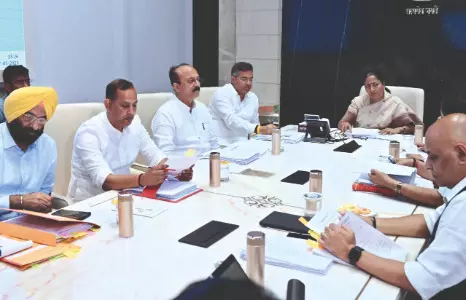Air pollution: Delhi Cabinet okays cloud-seeding trials

New Delhi: In a significant step towards combating Delhi’s chronic air pollution and addressing water scarcity, the Delhi Cabinet on Tuesday approved a Rs.3.21 crore project to conduct five cloud-seeding trials across the National Capital Region (NCR).
The initiative, spearheaded by the Environment Department, will be implemented by the Indian Institute of Technology (IIT) Kanpur.
The Cabinet, under the leadership of Chief Minister Rekha Gupta, cleared the proposal titled “Technology Demonstration and Evaluation of Cloud Seeding as an Alternative for Delhi NCR,” marking the city’s first attempt to explore artificial rain as a pollution-control strategy.
Environment minister Manjinder Singh Sirsa said the first trial is expected to take place in late May or June, targeting areas on the city’s periphery and covering around 100 square kilometres. “The proposal has been finalised and approved by the Cabinet led by Chief Minister Rekha Gupta. We are committed to conducting these
trials soon, exploring cloud-seeding as a contingency option during critical pollution periods,” he said.
Each trial will cost Rs 55 lakh, with an additional Rs 66 lakh set aside for one-time setup expenses, including aircraft calibration, chemical storage, and other logistics.
“Technology must be at the forefront of our battle against air pollution,” said Sirsa, adding, “The Rekha Gupta government is committed to giving clean air to the people of Delhi, and this project represents a bold and scientific step in that direction.” Before implementation, the Delhi government will need to secure permissions from 13 different agencies, including the Ministry of Defence,
Ministry of Home Affairs, Ministry of Environment, DGCA, and the Airports Authority of India.
IIT Kanpur will oversee the full project lifecycle, from planning and aircraft deployment to chemical dispersal and post-trial analysis. The Delhi government will directly transfer the project funds to the institute.Cloud seeding, which involves dispersing particles like silver iodide into clouds to induce rainfall, is being tested in Delhi as a way to settle airborne pollutants and improve air quality during periods of high smog and low rainfall.



